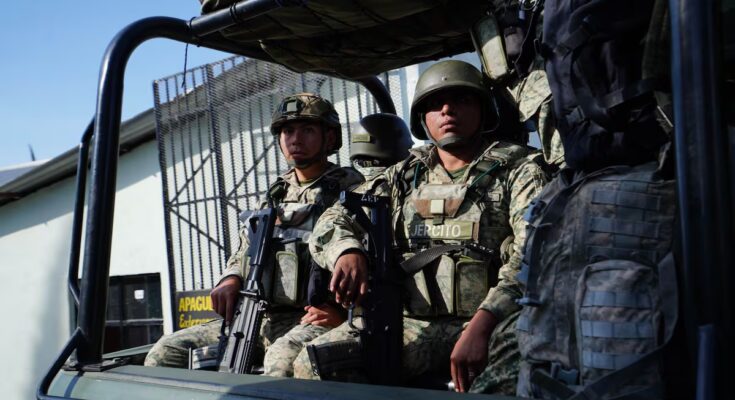Chair Sheinbaum finds herself facing increasingly complex challenges for which she cannot find a simple solution, much less if she uses the tools of the recent past to get out of the quagmire. The past is already worn out, the present is unforgiving and the future appears hesitant in the form of “michoacanazo”.
Challenges is an understatement. What the president faces are the crises that came with avocados and lemons. Michoacán returned to the national scene when the government still could not find a way out of the Sinaloa scare. Problems accumulate, emergencies accumulate, complaints accumulate, conflicts multiply. This is called crisis and it exists in politics, communication and security. The three are glued together.
As far as safety is concerned, it is clear that the optimistic presentation of the figures has been overtaken by the ruthless reality. With thousands of homicides down, two homicides in Michoacán were enough to turn the tide. The worst thing is that the situation risks worsening in other entities. The first presidential reaction was deplorable: the tired invective of the opponent, who blames what is happening now on the increasingly distant past. The countdowns no longer appear because the previous six-year period must be skipped and then the complaint remains empty. It is increasingly clear that the last six years is a void, a black hole that the current government cannot talk about.
The Michoacán pacification plan contains excellent intentions, like the previous ones that aimed to address the problems of that entity, but fundamentally we must dedicate ourselves to the fight against criminals. It’s great that the federal government wants to create “economic development hubs for well-being”, promote “sustainable forest production”, promote the provision of the “new Gertrudis Bocanegra scholarship” and activate “unstoppable Mexican high-performance sports centers”, just to name a few. But what the people of Uruapan asked for, and what the murdered mayor did, is to put an end to it, to put down the criminals who make their lives impossible. They want the authorities to defend them from murderers and extortionists; they don’t want to play volleyball.
In the chaos that is government communication, we should start by bringing order: put away the Batman costume, stop believing we live in a comic book; stop blaming the murdered man for what happened as the Secretary of Defense did when he said they didn’t fail in security, that it was the fault of the personnel who named the dead man; or to accuse the inhabitants of Michoacán that what they do is useless, as stated by the spokesperson Jesús Ramírez Cuevas when he stated that avocados, even if they sell a lot, do not generate “social benefits” and that the day workers of Michoacán have to fill up on methamphetamines to complete their work shifts. The former presidential spokesperson believes that the people of Michoacan have no salvation because what they produce has no impact and they also take drugs. Excellent. Meanwhile, the president attacks an elderly man because he “can’t even reach Chavorruco” and attacks young Twitter users for threatening her movement. Curious priorities.
Michoacán has turned the government’s argument on its head. The failure of the local administrations of Morena is an example in this sense. Believing that blaming Calderón is profitable makes no sense. In Uruapan they are asking for intervention because criminals are at war against citizens and the government. This is a fact. But the government insists it is not at war. I should think again, because the victims are on this side.
@juanizavala



